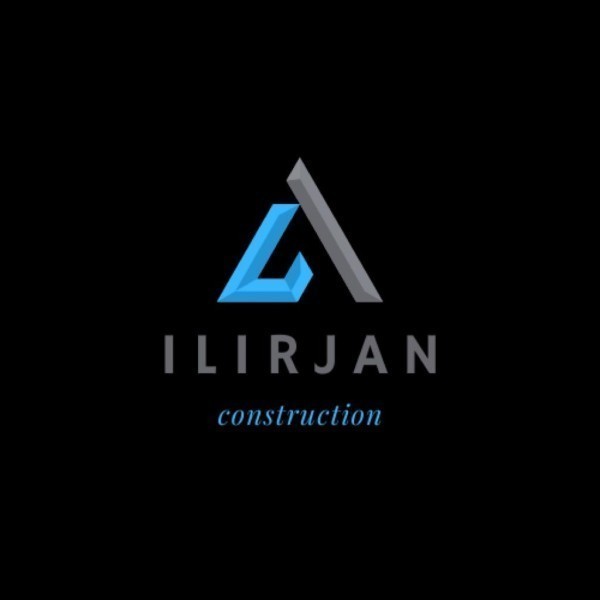Garage Conversions in Bedfordshire
J J Kelly & Sons Ltd is a distinguished family-run business nestled in the vibrant community of Round Greenread more »
Welcome to PR Construction, your go-to experts for all things building and renovation in Lower Gravenhurst and throughout Bedfordshire. O... read more »
Welcome to Amida Group, your trusted partner for comprehensive property maintenance and enhancement services in the heart of Bedfordshire... read more »
Ilirjan Ltd: Your Trusted Tradespeople in Fenlake, Bedfordshire
Welcome to Ilirjan Ltd, your go-to experts for a... read more »
David Hurst: Premier Builders in Caddington, Bedfordshire
Welcome to David Hurst, your go-to builders in Cadding... read more »
Custombuild: Your Go-To Tradespeople in Parkside, Bedfordshire
Welcome to Custombuild, your trusted partner for... read more »
Welcome to TotalcustomUK, your go-to experts for all... read more »
Burton & Sons Construction Services Limitedread more »
Welcome to J&M Paving And Roofing Services, your trus... read more »
Construction Live Ltd is your go-to... read more »
Welcome to BKS Builders, your premier choice for top-... read more »
MCQ Building Services is your truste... read more »
Welcome to Adinah Construction Ltd., your trusted par... read more »
Welcome to D & C Installations LTD, your trusted part... read more »
Welcome to Water & Heat, your trusted partner for all... read more »
Welcome to Wizebuilders, your premier choice for top-... read more »
GF Company is a reputable business l... read more »
DG Mac Construction Ltd, nestled in... read more »
Welcome to DHT Brickwork, your trusted partner for al... read more »
Search Garage Conversions in Bedfordshire by town
Introduction to Garage Conversions in Bedfordshire
Garage conversions in Bedfordshire have become increasingly popular as homeowners seek to maximise their living space without the hassle of moving. With the picturesque countryside and charming towns, Bedfordshire offers an ideal setting for transforming underutilised garages into functional and stylish living areas. Whether you're looking to create a home office, an extra bedroom, or a playroom, converting your garage can be a cost-effective and rewarding project.
The Benefits of Garage Conversions
Garage conversions offer numerous benefits that make them an attractive option for homeowners. Firstly, they can significantly increase the value of your property. By adding extra living space, you enhance the functionality and appeal of your home. Additionally, garage conversions are often more affordable than building an extension, as the basic structure is already in place.
Moreover, converting a garage can be completed relatively quickly compared to other home improvement projects. This means less disruption to your daily life and a faster return on investment. Plus, with the growing trend of remote work, having a dedicated home office can be a game-changer for productivity and work-life balance.
Planning Permission and Regulations
Before embarking on a garage conversion in Bedfordshire, it's essential to understand the planning permission and building regulations involved. In many cases, garage conversions fall under permitted development rights, meaning you won't need formal planning permission. However, this can vary depending on your property's location and specific circumstances.
It's crucial to check with your local council to ensure compliance with all regulations. Building regulations will still apply, focusing on aspects such as structural integrity, fire safety, and energy efficiency. Hiring a professional architect or builder familiar with local regulations can help streamline the process and ensure your conversion meets all necessary standards.
Design Ideas for Garage Conversions
The possibilities for garage conversions are virtually endless, limited only by your imagination and budget. Here are some popular design ideas to consider:
- Home Office: Create a quiet and comfortable workspace with ample natural light and ergonomic furniture.
- Guest Bedroom: Add an ensuite bathroom and cosy furnishings to welcome visitors.
- Playroom: Design a fun and safe space for children to play and explore.
- Home Gym: Equip your garage with exercise machines and storage for a convenient workout area.
- Studio or Workshop: Set up a creative space for hobbies or professional work.
Cost Considerations
The cost of a garage conversion in Bedfordshire can vary widely depending on the size of the garage, the complexity of the design, and the quality of materials used. On average, you might expect to spend between £10,000 and £20,000. However, this is a rough estimate, and costs can be higher for more elaborate projects.
It's important to budget for all aspects of the conversion, including design, labour, materials, and any necessary permits or inspections. Getting multiple quotes from reputable builders can help you find the best value for your investment.
Choosing the Right Professionals
Hiring the right professionals is crucial to the success of your garage conversion. Look for builders or architects with experience in similar projects and a solid reputation in the community. Checking references and viewing previous work can provide insight into their quality and reliability.
Additionally, consider working with professionals who offer a comprehensive service, from initial design to final construction. This can simplify the process and ensure a cohesive approach to your project.
Maximising Space and Functionality
When planning your garage conversion, it's essential to maximise the available space and ensure the new area is functional and comfortable. Consider the layout carefully, taking into account factors such as lighting, ventilation, and storage.
Using multi-functional furniture and clever storage solutions can help make the most of a smaller space. For instance, built-in shelves or fold-away desks can provide additional functionality without sacrificing room.
Incorporating Energy Efficiency
Energy efficiency is an important consideration for any home improvement project, and garage conversions are no exception. Proper insulation, energy-efficient windows, and sustainable materials can help reduce energy consumption and lower utility bills.
Consider installing LED lighting and energy-efficient heating systems to further enhance the sustainability of your conversion. These features not only benefit the environment but can also add value to your property.
Addressing Common Challenges
While garage conversions offer many benefits, they can also present challenges. One common issue is ensuring adequate natural light, as garages often have limited windows. Installing skylights or additional windows can help brighten the space.
Another challenge is maintaining privacy, especially if the garage is located near a busy street. Using frosted glass or strategic landscaping can provide privacy without sacrificing light or aesthetics.
Legal and Safety Considerations
Ensuring your garage conversion complies with all legal and safety requirements is paramount. This includes adhering to building codes and obtaining any necessary permits. Safety features such as smoke detectors and fire-resistant materials should also be incorporated into the design.
Working with experienced professionals can help navigate these requirements and ensure your conversion is both safe and legal.
Financing Your Garage Conversion
Financing a garage conversion can be achieved through various means, including savings, home improvement loans, or remortgaging. It's important to explore all options and choose the one that best suits your financial situation.
Consulting with a financial advisor can provide valuable insights and help you make informed decisions about funding your project.
Case Studies of Successful Conversions
Examining case studies of successful garage conversions can provide inspiration and practical insights. For example, a family in Bedfordshire transformed their garage into a spacious home office, complete with custom cabinetry and a large window for natural light.
Another homeowner converted their garage into a cosy guest suite, adding an ensuite bathroom and stylish decor to create a welcoming space for visitors.
Maintaining Your Converted Space
Once your garage conversion is complete, regular maintenance is essential to keep the space in top condition. This includes routine cleaning, checking for any structural issues, and ensuring all systems are functioning properly.
Addressing any problems promptly can prevent more significant issues down the line and help maintain the value of your investment.
Future Trends in Garage Conversions
The future of garage conversions looks promising, with trends leaning towards more sustainable and tech-savvy designs. Smart home technology, such as automated lighting and climate control, is becoming increasingly popular in converted spaces.
Additionally, as environmental awareness grows, more homeowners are opting for eco-friendly materials and energy-efficient solutions in their conversions.
Frequently Asked Questions
- Do I need planning permission for a garage conversion in Bedfordshire? In many cases, garage conversions fall under permitted development rights, but it's essential to check with your local council.
- How much does a garage conversion typically cost? Costs can vary, but on average, you might expect to spend between £10,000 and £20,000.
- How long does a garage conversion take? The timeline can vary depending on the complexity of the project, but most conversions can be completed in a few weeks.
- Can I convert a detached garage? Yes, detached garages can also be converted, though they may require additional considerations for utilities and access.
- What are some popular uses for converted garages? Common uses include home offices, guest bedrooms, playrooms, home gyms, and studios.
- How can I ensure my garage conversion is energy efficient? Incorporating proper insulation, energy-efficient windows, and sustainable materials can enhance energy efficiency.











